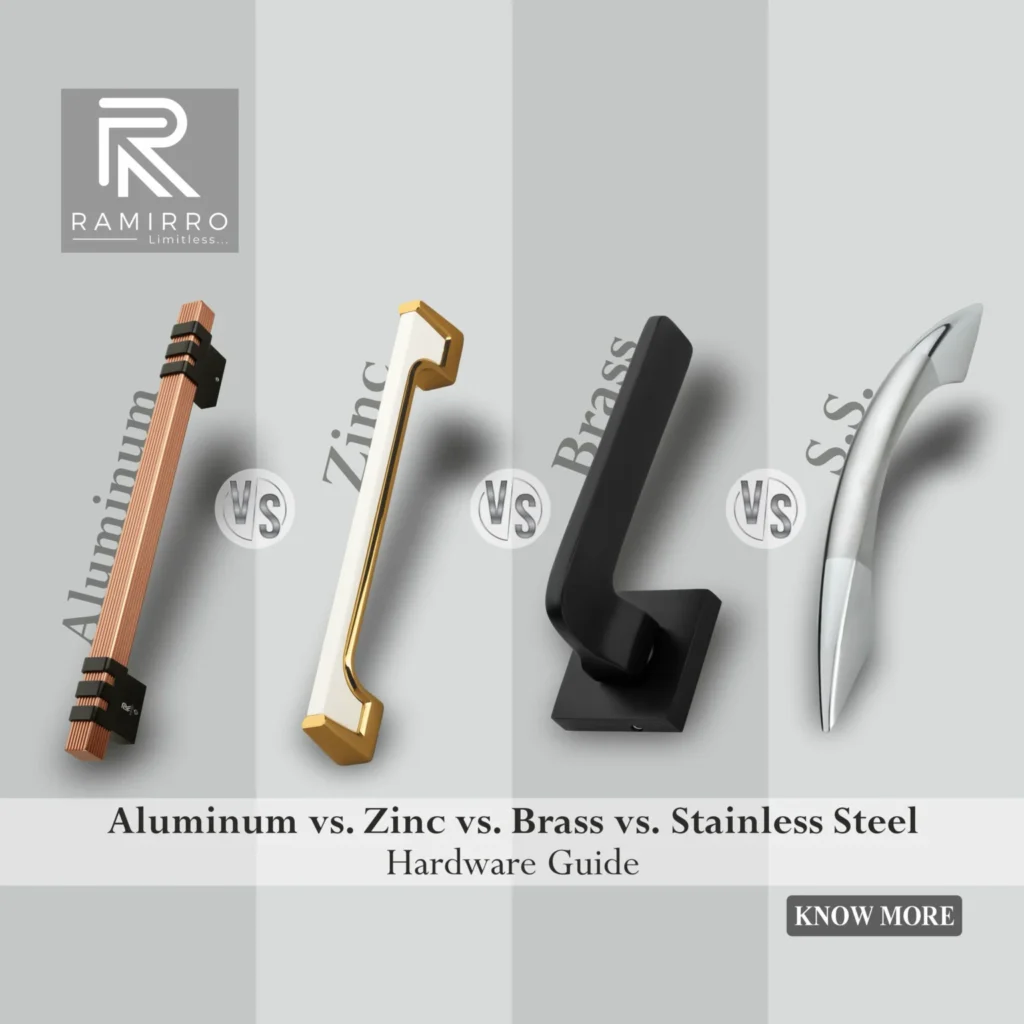When choosing the right materials for hardware applications, understanding the differences between aluminum, zinc, brass, and stainless steel is crucial. Each of these metals offers unique properties that can significantly impact performance, durability, and aesthetics. Ramirro Arc aims to provide insights into how these materials compare in terms of strength, rust resistance, corrosion, and overall durability. Whether you’re considering aluminium cabinet handles for your kitchen or weighing the options between brass and stainless steel for decorative fixtures, this guide will help you make informed decisions that align with your specific needs. Join us as we explore the advantages and disadvantages of each material to find the best fit for your next project.
Choosing a material with high durability ensures your hardware will withstand daily wear and tear. Strength is essential, especially in high-stress applications, to avoid breakage or deformation. Materials like stainless steel and brass are known for their superior strength, while aluminum offers a balance of strength and lightweight properties.
The ability of a material to resist corrosion significantly impacts its longevity. For outdoor or high-humidity environments, materials like stainless steel, brass, and aluminum are preferred due to their resistance to rust and other forms of corrosion. Zinc alloys may offer moderate resistance but require proper coatings for optimal performance.
Some applications require lightweight materials for ease of installation and handling. Aluminum is the lightest option, making it ideal for applications like aluminium profile handles for sliding wardrobe doors. Stainless steel and brass are heavier and may be better suited for heavy-duty fixtures where additional weight is beneficial for stability and strength.
